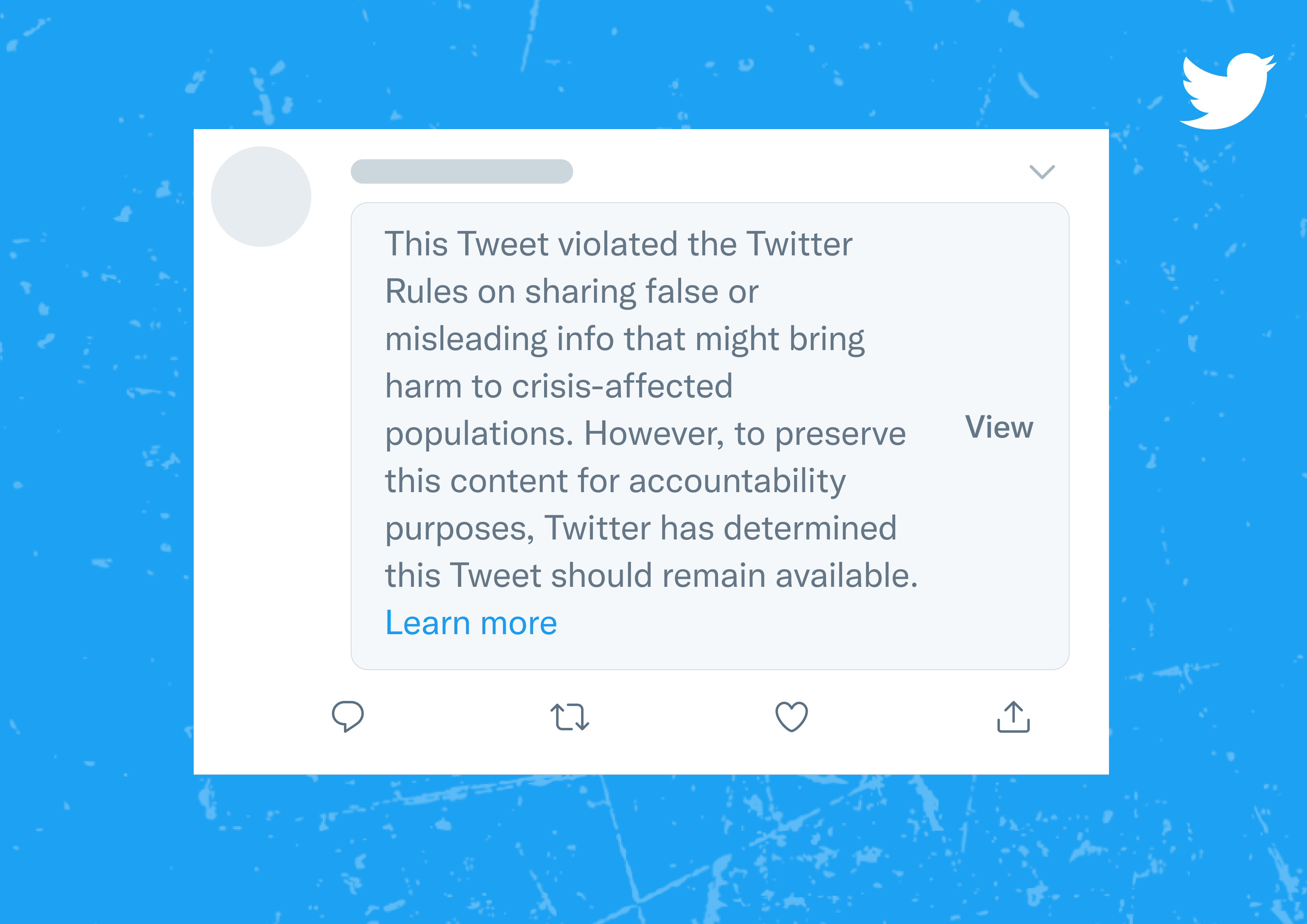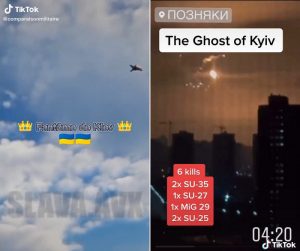Twitter announced a new policy to combat the spread of fake news about war in ukraine.
Posts that contain false information about the conflict, even in government accounts, will receive a warning of “disinformation that could pose a risk to crisis-affected populations.”
The platform’s so-called crisis misinformation policy will also prevent these tweets from gaining likes, retweets, shares, and monetization. But the removal of the content won’t happen for fear of infringing on Twitter’s freedom of expression.
Flag fake news about Ukraine on any account type
The change comes three months after the conflict between Russia and Ukraine began, which saw a wave of misinformation and misleading content circulating on social media.
Fake news is often spread deliberately by Russian state sources to manipulate public opinion about the war, noting international experts and media companies such as the British BBC who alter their content.
“In times of crisis, misleading information can undermine public trust and further harm already vulnerable communities,” Yoel Roth, Twitter’s head of security and protection, said in a blog post announcing the changes. Said.
The platform explains: Fake content posted by high-reach accounts will be flagged with a warning for the user to click the hashtag before accessing the tweet, but will not be deleted for “liability” reasons.
The “false information” flagging, according to Twitter, “Verification from a variety of trusted and publicly available sources, including evidence from conflict watch groups, humanitarian organisations, open source researchers, journalists and more.
“We will not expand or recommend content covered by this policy on Twitter, including Home Timeline, Search & Discover, when we have evidence that a claim may be misleading.”
The company emphasizes that the priority for ranking fake news about the war in Ukraine will be government-linked media profiles and verified official government accounts. Below is an example of the tag to use:

The company has listed examples of content above that could receive a warning like:
- False publication or reporting of events or information that misrepresents them as a conflict develops;
- False claims regarding the use of force, territorial sovereignty or the use of weapons;
- Clearly false or misleading allegations of war crimes or mass atrocities against certain populations;
- Misinformation about the international community’s response, sanctions, defense actions, or humanitarian operations.
Twitter does not allow controversial opinions, verification attempts, personal accounts or does not fit in first person policy scope.
read it too
Fake news: Kremlin prepares ‘BBC video’ to blame Ukraine for train station attack; to watch
In April, Twitter announced that it had restricted the content of more than 300 Russian government accounts, including President Vladimir Putin, precisely because of misinformation about the war.
Roth said the platform began working on the new policy before the conflict with Ukraine and should continue to explore ways to scale it up.
“As this first iteration focuses on international armed conflicts, starting with the war in Ukraine, we plan to update and expand policy to include additional forms of crisis.
The policy will complement our current work deployed during other global crises such as Afghanistan, Ethiopia and India.”
Changes happen in the middle of negotiations. Twitter acquisition by Billionaire Entrepreneur Elon Muskfrequently questioning freedom of expression on the platform and advocates less moderation in content.
Russia uses ‘weapons’ against Ukraine on Twitter
Twitter’s new policy is expected to block a practice that the Russian government uses to spread fake news propaganda and manipulation of facts to confuse the public about the invasion of Ukraine.
Leveraging a loophole in the platform itself, Kremlin broadcasts reach millions around the world without any filtering or content verification via a practice known as “astroturfing.”
In digital media jargon, the term refers to movements on social networks, which are actions that ostensibly come from ordinary people, but are in fact acted by unidentified agents as the authors of posts and opinions to spread synchronously and rapidly. disinformation or political propaganda.
Analysis of 75 accounts over the course of a week found fake news deliberately spread by Russian-sponsored profiles, such as the mass genocide of civilians by the Ukrainian government. “New world order”.
These allegations were debunked by newspapers and data control agencies, but not before they gathered millions of opinions and offered an alleged justification for Russia’s invasion of Ukraine.
With this “gap”, the 75 Russian government accounts analyzed are working together to increase disinformation. The survey found that they tend to retweet the same fake content almost simultaneously – a practice that Twitter should now completely block with the new hashtag identifying fake news.
read more
source: Noticias
